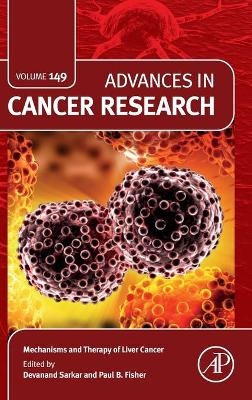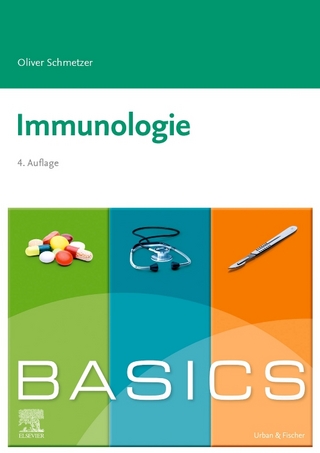
Mechanisms and Therapy of Liver Cancer
Academic Press Inc (Verlag)
978-0-12-824030-4 (ISBN)
Paul B. Fisher, MPh, PhD, FNAI, Professor and Chairman, Department of Human and Molecular Genetics, Director, VCU Institute of Molecular Medicine Thelma Newmeyer Corman Chair in Cancer Research in the VCU Massey Cancer Center, VCU, School of Medicine, Richmond, VA, and Emeritus Professor, Columbia University, College of Physicians & Surgeons, New York, NY. Dr. Fisher is among the top 10% of NIH funded investigators over the past 35-years, published approximately 625 papers and reviews, and has 55 issued patents. He pioneered novel gene/discovery approaches (subtraction hybridization), developed innovative therapeutic approaches (Cancer Terminator Viruses), presented numerous named and distinguished lectures, founded several start-up companies, was Virginia Outstanding Scientist of 2014 and elected to the National Academy of Inventors in 2018. Dr. Fisher is a prominent nationally and internationally recognized cancer research scientist focusing on understanding the molecular and biochemical basis of cancer development and progression to metastasis and using this garnered information to develop innovative approaches for diagnosing and treating cancer. He discovered and patented novel genes and gene promoters relevant to cancer growth control, differentiation and apoptosis. His discoveries include the first cloning of p21 (CDK inhibitor), human polynucleotide phosphorylase, mda-9/syntenin (a pro-metastatic gene), mda-5 and mda-7/IL-24, which has shown promising clinical activity in Phase I/II clinical trials in patients with advanced cancers. Dr. Fisher alsohas a documented track record as a successful seasoned entrepreneur. He was Founder and Director of GenQuest Incorporated, a functional genomics company, which merged with Corixa Corporation in 1998, traded on NASDAQ and was acquired by GlaxoSmithKline in 2006. He discovered the cancer-specific PEG-Prom, which is the core technology of Cancer Targeting Systems (CTS, Inc.), a Virginia/Maryland-based company (at Johns Hopkins Medical Center) focusing on imaging and therapy (“theranostics) of metastatic cancer (2014) by Drs. Fisher and Martin G. Pomper. He co-founded InVaMet Therapeutics (IVMT) and InterLeukin Combinatorial Therapies (ILCT) with Dr. Webster K. Cavenee (UCSD) (2017/2018). Dr. Sarkar received his MBBS from Dhaka Medical College, Bangladesh and PhD from Nagoya University, Japan. After postdoctoral training in Columbia University, NY he joined Virginia Commonwealth University (VCU) as a faculty where he is now a Professor in the Department of Human and Molecular Genetics, and Associate Director of Education and Training at Massey Cancer Center. Dr. Sarkar’s research focuses on identifying novel regulators of hepatocellular carcinoma (HCC), especially obesity-induced HCC, and developing targeted gene- and immunotherapy based on the accrued knowledge. Dr. Sarkar has published more than 280 papers and his research is funded by NCI, NIDDK and DOD.
1. Hepatocellular carcinoma (HCC): Epidemiology, etiology and molecular classification
Saranya Chidambaranathan-Reghupaty, Paul B. Fisher, and Devanand Sarkar
2. Signaling pathways in hepatocellular carcinoma
Teresa Garcia-Lezana, Juan Luis Lopez-Canovas, and Augusto Villanueva
3. Hepatitis C virus associated hepatocellular carcinoma
Mousumi Khatun, Ranjit Ray, and Ratna B. Ray
4. NAFLD-related HCC
Bubu A. Banini and Arun J. Sanyal
5. Atypical immunometabolism and metabolic reprogramming in liver cancer: Deciphering the role of gut microbiome
Rachel M. Golonka and Matam Vijay-Kumar
6. Systemic therapy of liver cancer
Tarik Demir, Sunyoung S. Lee, and Ahmed O. Kaseb
7. Immunotherapy in hepatocellular cancer
Christos Fountzilas, Rachel Evans, Sabah Alaklabi, and Renuka Iyer
8. Intrahepatic cholangiocarcinoma: Morpho-molecular pathology, tumor reactive microenvironment, and malignant progression
Alphonse E. Sirica, Mario Strazzabosco, and Massimiliano Cadamuro
| Erscheinungsdatum | 02.02.2021 |
|---|---|
| Reihe/Serie | Advances in Cancer Research |
| Verlagsort | San Diego |
| Sprache | englisch |
| Maße | 152 x 229 mm |
| Gewicht | 750 g |
| Themenwelt | Studium ► Querschnittsbereiche ► Infektiologie / Immunologie |
| Naturwissenschaften ► Biologie ► Genetik / Molekularbiologie | |
| Naturwissenschaften ► Biologie ► Mikrobiologie / Immunologie | |
| Naturwissenschaften ► Biologie ► Zellbiologie | |
| ISBN-10 | 0-12-824030-X / 012824030X |
| ISBN-13 | 978-0-12-824030-4 / 9780128240304 |
| Zustand | Neuware |
| Haben Sie eine Frage zum Produkt? |
aus dem Bereich


